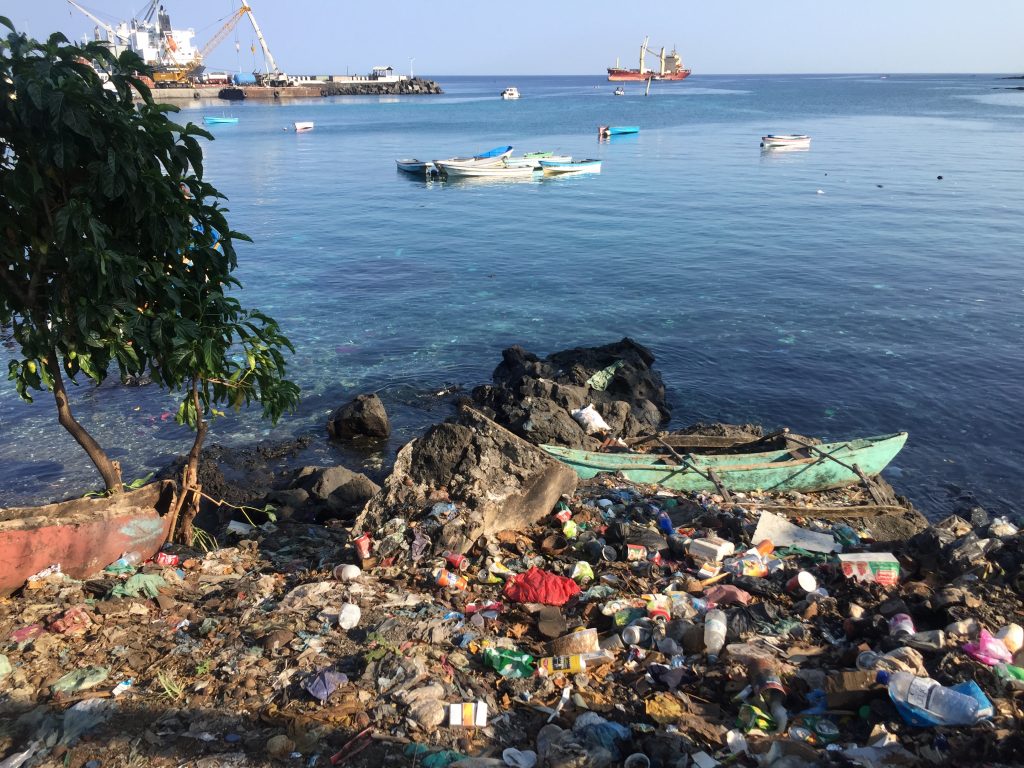France is organizing a ministerial summit at UNESCO in Paris from 29 May to 2 June to make progress on an international treaty against plastic pollution, previously approved by an agreement. The United Nations last year concluded a historic agreement, the first global decision to end plastic pollution. Following by a first negotiating session in Uruguay at the end of 2022, discussions on the treaty will continue in Paris for five days. They will be followed by three more sessions by the end of 2024 and should facilitate the adoption of the treaty scheduled for 2025.
What is at stake with this treaty?
The future Treaty will include a series of binding and voluntary measures to combat plastic pollution. It should cover the actions that each country will need to take throughout the life cycle of plastics, from design, to production, to consumption, to waste management.“The fight against plastic pollution is a major priority for France and we are determined to play our full part in this collective effort. We have already adopted a decisive trajectory at the national level, with the AGEC law in particular, to reduce the uses of plastic, develop a circular system, promote the collection and recycling of waste, invest in innovative technologies and put an end to all the particularly devastating releases of micro-plastics,” explains Christophe Bechu, French Minister for Ecological Transition and Territories, ahead of the summit.
The AGEC law, more specifically, the “anti-waste law for a circular economy” was passed in France on 10 February 2020. Several countries have adopted and promulgated laws prohibiting the use of plastic such as those on the use of plastic bags. But it is their application that is lacking. On October 05, 2017, the President of the Republic of the Union of Comoros Azali promulgated a law prohibiting the import, marketing and distribution of non-biodegradable plastic packaging and bags. But, this law is not applied in these islands located in the Indian Ocean.
The international treaty will contribute to the homogenisation of definitions in the lexical field of the fight against plastic pollution. References to the circular economy and microplastics will be incorporated. The legally binding nature of the agreement encourages States to take voluntary measures on the global awareness of the release of plastic into the environment, land, sea and air. However, the implementation of the future treaty is far from easy. It is financially conditional, and also linked to technology transfer and capacity building.
The US annoncements
US Undersecretary José W. Fernandez in charge of economic growth, Energy and Environment and Acting Assistant Secretary Littlejohn currently in Paris for this Ministerial Summit recently announced their willingness to meet with business representatives, civil society and other stakeholders to foster cooperation in the fight against plastic pollution.
In a statement, the Sub-Secretary Fernandez announced a $7 million grant to the United Nations Environment Programme to help some developing countries develop and implement national action plans to combat pollution. plastic, facilitate the exchange of information and good practices, and support participation in the process of intergovernmental negotiating committees.
In addition, the Undersecretary noted in the statement that the State Department is working to establish a public-private partnership, the End Plastic Pollution International Collaborative (EPPIC), providing up to $14.5 million to help launch this effort. EPPIC will bring together governments, businesses, civil society, philanthropists and others to galvanize global action on plastic pollution and focus on advancing circular and scientific solutions to reduce, reuse and recycle plastic.
According to verified data taken up by the French Ministry of Ecological Transition and Territories, every year about 460 million tonnes of plastics are produced. 353 million tons become waste, the weight of nearly 35,000 Eiffel towers, making plastic the third most manufactured material in the world, behind cement and steel. Synonymous with progress and modernity for many years, plastic poses a question today because of the pollution it generates. Unlike other materials, its life cycle is particularly short: today, 81% of plastic products end up as waste in less than a year. Of this waste, only 9% are recycled today in the world, 20% incinerated, almost half end up in landfills while more than 20% are burned in the open air or abandoned in nature. Plastic pollution has become a global scourge with adverse consequences for human health and the environment. Every minute, 15 tons of plastic are released into the ocean, which causes plastic debris to make up 85% of the polluting materials at sea. In fact, there could be more plastic than fish in the ocean by 2050.

“Any delay could lead to an increase of 80 million tonnes of plastic pollution per year by 2040”
The United Nations Environment Programme calls for a drastic reduction in plastic production, to be divided by two, from 380 million tonnes a year to only 149 million. A dizzying fall that forces us to radically rethink the place of plastic. The United Nations Environment Agency is warning that any delay could lead to an additional 80 million tonnes of plastic pollution per year by 2040.
On 14 December 2022, the UN General Assembly unanimously adopted the resolution “Promoting zero waste initiatives to advance the 2030 Agenda for Sustainable Development”, which proclaims 30 March as International Zero Waste Day. The resolution was presented by Turkey with 105 other countries. After a first negotiating session in Uruguay at the end of 2022, France will host the Ministerial Summit for a week at UNESCO Headquarters in Paris, where several civil society actors from around the world are represented, business leaders and elected officials of all stripes. Three more negotiating sessions are planned by the end of 2024 before the diplomatic conference for the adoption of the treaty in 2025.
By Houmi AHAMED-MIKIDACHE




